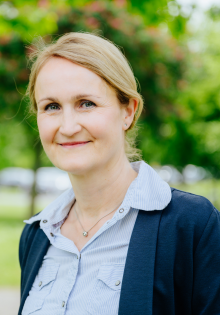Topics from mathematics, computer science, natural sciences and technology (MINT) have a lot to offer in practice: Vivid experiments, exciting ways of working and impressive results. Pupil laboratories have proven to be particularly conducive to motivation and interest in STEM topics. "The potential for using these labs for teacher training (LFB) has not yet been fully exploited," says Prof. Dr Eva Blumberg from the Paderborn University. The new joint project "LFB-Labs-digital", in which Blumberg's working group is involved, aims to change this. The project is developing student labs into places for teacher training that focus on teaching digital skills. It is led by the Bielefeld University, and a total of eight universities are involved. Among other things, the researchers want to investigate the question of how teachers can be trained and further educated in the digital world in the STEM area more advantageously than before. The Federal Ministry of Education and Research (BMBF) is funding the network from April of this year until the end of September 2025 with about 3.2 million euros.
Blumberg (Didactics of Science Education) is involved in the project together with her cooperation partner Prof. Dr. Katrin Temmen from the Didactics of Technology. Blumberg is leading a sub-project in Paderborn to research the conditions for success, which is being funded with around 220,000 euros. Blumberg reports: "The scientific competencies of fourth graders are declining. At the same time, too few science teachers are being trained in the use of digital media. With the project, we want to change this in accordance with the approach of design-based research in close science-practice cooperation: First, we will identify potentials and barriers on the part of the science teachers in order to then develop a teacher training course in multi-professional composition in several cycles". In concrete terms, the aim is to practise science and technology learning with digital support, also in connection with extracurricular learning locations (e.g. for water analysis with a tablet and USB microscope) in science lessons. In all sub-projects at the student laboratory level, various interdisciplinary conditions for success and implementation are being determined. The researchers expect the first results at the end of this year.


